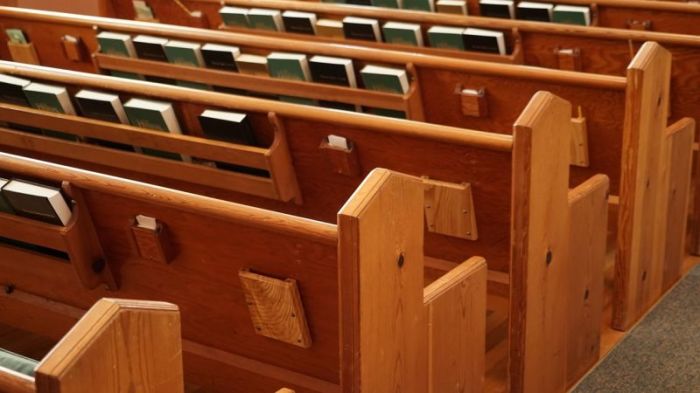'Wake-up call': Anglican Church of Canada may cease to exist by 2040, says report

The Anglican Church of Canada will run out of members by the year 2040 if its current rate of decline continues, according to a recently released report.
The Rev. Canon Neil Elliot gave a presentation last Saturday at the ACC Council of General Synod on the statistics for the members of the worldwide Anglican Communion.
The statistics were compiled last year and reflected membership numbers in 2017. It was the first report on church statistics since 2001.
According to Elliot’s report, in 2017, the ACC had approximately 357,000 members, representing 1 percent of the overall national population.
This was a sharp decline compared to 2001, when the church reported over 641,000 members representing 2 percent of the population, and an even steeper drop compared to 1961, when the ACC had over 1.3 million members representing 7 percent of the population.
As Elliot noted, from 1961 to 2001, membership declined by about 50 percent, leading him to project that the church body will no longer have any members by 2040 if the decline continues at its current rate.
Comparing 2001 and 2017 numbers, Elliot found that average Sunday attendance declined from 162,168 to 97,421 and the number of “regular identifiable givers” dropped from 212,577 to 130,456.
Archbishop Linda Nicholls, head of the ACC, said in a statement that the report was a “wake-up call,” stressing the need for the denomination to focus on the mission at hand.
“We’re called to do and be God’s people in a particular place, for the purpose of sharing the good news of Jesus Christ, and the only question is, ‘How do we need to share it, so that it might be heard by those around us?’” stated Nicholls, as reported by the ACC national newspaper the Anglican Journal.
“It’s my hope that when we leave here, the message we take is not ‘Oh no, the church is dying,’ but ‘Oh, we’ve got a challenge’ … But we’ve also got a hopeful way of addressing that.”
The ACC has experienced divisive debate over LGBT issues, with many leaving the church over the past several years due to the overall theologically liberal direction of the denomination.
In 2008, for example, theologian J.I. Packer, named one of the 25 most influential evangelicals in the world by Time magazine in 2005, left the denomination over what he labeled "poisonous liberalism."
In July, the ACC General Synod did not pass an amendment to their canon to allow for the blessing of same-sex marriages despite strong support within the denomination.
The amendment required two-thirds majority vote from all three General Synod orders. While it got such from the Order of Laity (80.9 percent support) and Order of Clergy (73.2 percent support), it failed to do so in the Order of Bishops (62.2 percent support).
“We, members of the House of Bishops of the Anglican Church of Canada, see the pain and anguish inflicted on LGBTQ2S+ people, on members of the General Synod, across the church, and in the world, as a result of the work and the vote on the matter of Canon XXI, concerning marriage,” stated the House of Bishops, as reported by Episcopal News Service.
“We see your tears, we hear your cries, and we weep with you. We have caused deep hurt. We are profoundly sorry.”





























